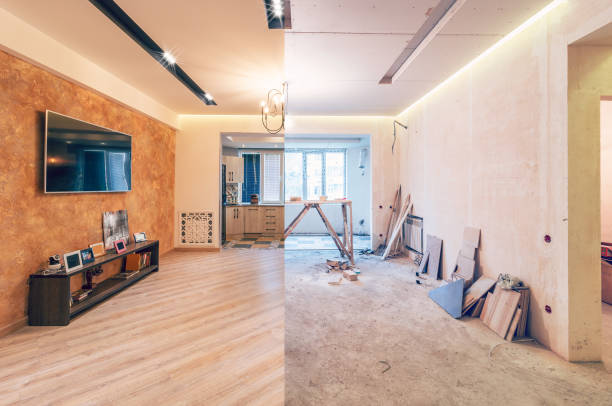Getting the ‘wow’ factor: do your homework and count the cost

The Society of Chartered Surveyors Ireland (https://scsi.ie/) have just published
a guide to support homeowners with their renovation projects.
It’s not an easy time to undertake a home renovation. After a number of
years of high demand, plus fast rising materials costs, embarking on an
extension or energy upgrade is not for the faint-hearted.
If you are starting out on a home renovation or a refurbishment to achieve
your ‘dream kitchen’, the longed-for attic conversion or a sleek and modern
living and dining space, it is easy to get excited and rush into your project.
Problems and delays can quickly show if you have not fully counted the cost of
your project, and this can substantially add to the project budget.
Since the pandemic in 2020 in particular, home improvement has been seen as
a more affordable and practical way to improve a property. But homeowners
should be careful not to rush into renovating or converting without making a
full calculation of the costs involved, which go far beyond the building costs
alone.
Getting Started
One of the biggest issues you’ll have to resolve before you undertake your
building project is working out whether or not you’ll need planning
permission and, if you do need it, starting the process to get it.
Small-scale domestic extensions may not require permission if it is to the rear
of the house and does not increase the original floor area by more than 40sq.
m (430sq. ft), assuming the house has not been extended before. Remember,
however, that if you are also converting your garage, or if it has already been
converted, this floor space must be included in the 40sq. m total.
If you want to build in the garden, you can build a garden room up to a
maximum size of 25sq. m (269sq. ft), provided you leave 25sq. m of free
space in your garden.
And it’s not just planning permission you’ll have to comply with; building
regulations are also in place to ensure that designers, specifiers and builders
follow standards in construction so as to avoid defects.
Are there grants available?
Given the costs of construction at present, you should be particularly
proactive when it comes to defraying these expenses by informing yourself of
all available grants.
Given the sharply rising energy costs, improving the energy efficiency of your
home is likely to be a priority as part of your upgrade, with insulation,
draught proofing, ventilation, heat pumps and heating controls all likely to be
on your list. The best place to find out what’s available is the Sustainable
Energy Authority of Ireland (SEAI) (www.seai.ie).
Remember, if you are carrying out energy upgrade works, and you hope to
avail of SEAI grants, ensure that any contractors you hire for the work are
SEAI approved.
There are numerous sides to the renovation project that need to be
considered and the above are only some examples of what may be involved.
It is not uncommon for people to overlook the following costs:
Professional fees
Furniture
Accommodation while work is ongoing – renting a home for say 6
months
Contingencies
The SCSI have produced a comprehensive guide that will be the bible of any
well-ordered and planned renovation, it is called: ‘Engaging the service of a
building contractor – a practical checklist’ it is available for free at
https://scsi.ie/chartered-surveyors-publish-new-guide-for-homeowners-
embarking-on-building-projects/
Follow us on Facebook & LinkedIn to stay up-to-date with latest blogs.
